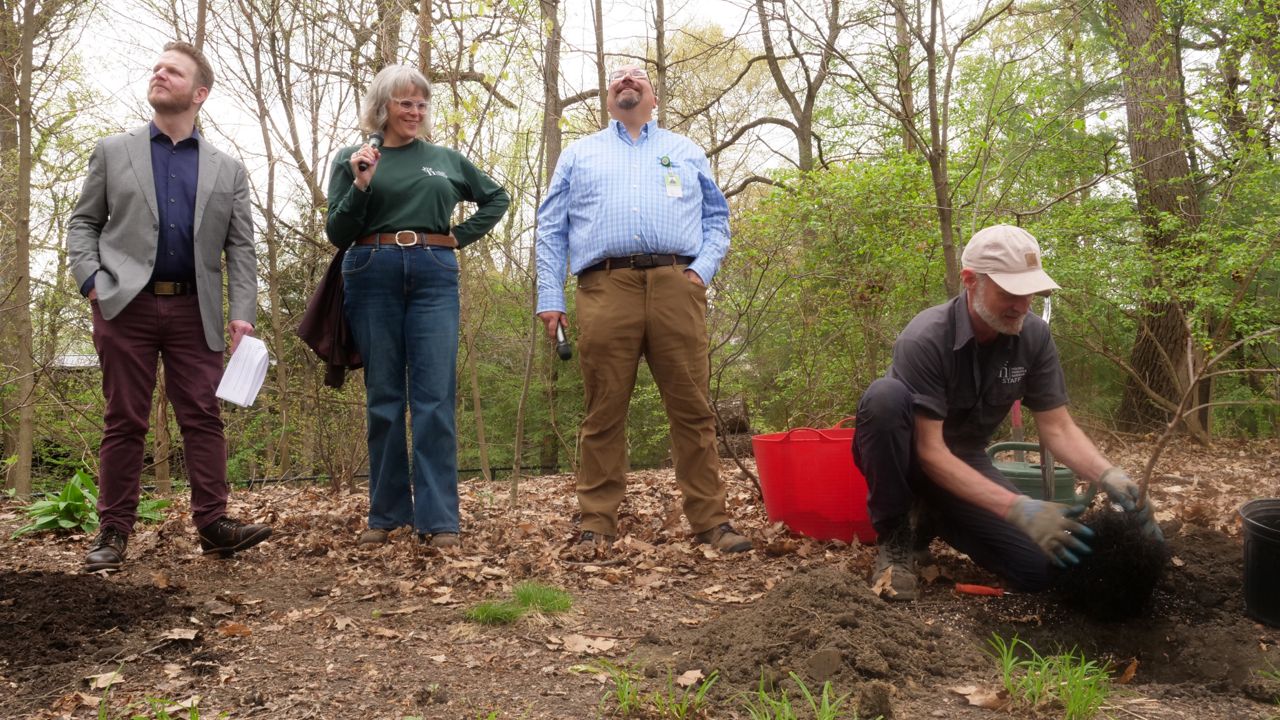CINCINNATI — Cincinnati native Michael Moore knows a thing or two about financial wellness, but he said that wasn’t always the case.
“When I came out of college I had a lot of credit card debt. I thought credit cards were just free magical tools that you didn't even really have to pay back,” Moore said.
With age came wisdom for Moore, and he wants to share that knowledge to help change lives. Back in 2018, Moore found the nonprofit Black Achievers Professional Network. BAN’s goal is to connect, educate and economically empower members through networking and community outreach. There are now 200,000 members across 12 cities, including Cincinnati, Columbus and Cleveland.
“The reality is that no one has really made you feel like you’re willing to take the risk. Someone is going to help you, nurture you, mentor you, and to sponsor you. That's what you get from the Black Achievers Network,” Moore said.
Moore said that closing the wealth gap is their big focus going into 2025, as they plan to launch three programs aimed at improving credit scores, increasing financial literacy and growing the number of black homeowners in the region.
The National Association of Realtors estimated Black homeownership to be 44.1% compared to 73.3% for white Americans.
“So what we want to do is make sure that young professionals understand how you make a down payment, get down payment assistance, and how to find a neighborhood to put down roots,” Moore said.
"Financial literacy just wasn't at the forefront. It wasn't the bedrock of our childhood to truly understand how we manage finances and what it takes to build generational wealth," Bank of America's Cincinnati Market Executive LaNae Barnes said.
Black Achievers Network was one of BofA’s 2023 Neighborhood Builders, received a $200,000 grant to support programs and services focused on building economic mobility. Barnes said that BAN's work is helping break generational curses.
“They are doing the specific work to ensure that they're speaking to the African American community on how to arm them with information so they have a plan or a pathway to move forward and stop looking backwards,” Barnes said.
Finance research company, FinMasters, reviewed FICO credit data and found that the average credit score for African Americans is 627, compared to a new 737 average credit score for white Amercans. The data also showed that an average credit score in Ohio is 716.
Moore isn’t doing it alone, thanks to a leadership team who have the same vision. Vice President of Operations David Iyoha said that as they continue to see rapid growth, the hope is that those new initiatives can get individuals one step closer to the American Dream.
“We're trying to get a percentage, at least 10%, to increase their credit score to over 700. Then with just general financial literacy, we want to help improve their financial standing and increase savings,” he said.
“The challenge is really getting out the word that these programs exist. Then, we want to give people the confidence that it can be done,” Moore said.
The Black Achievers Network plans to have two to three cohorts a year with around 30–40 individuals per cohort.












